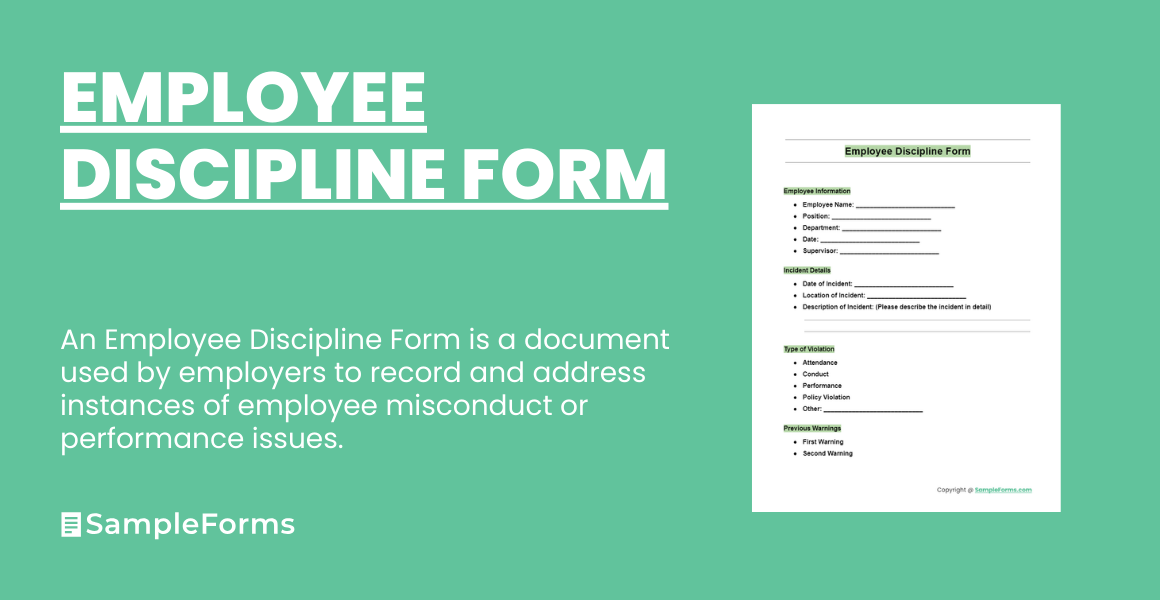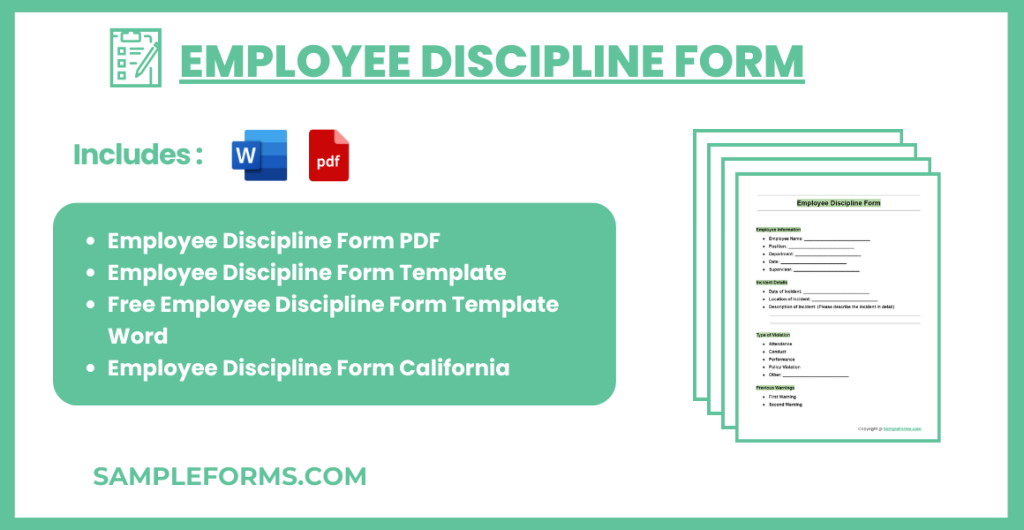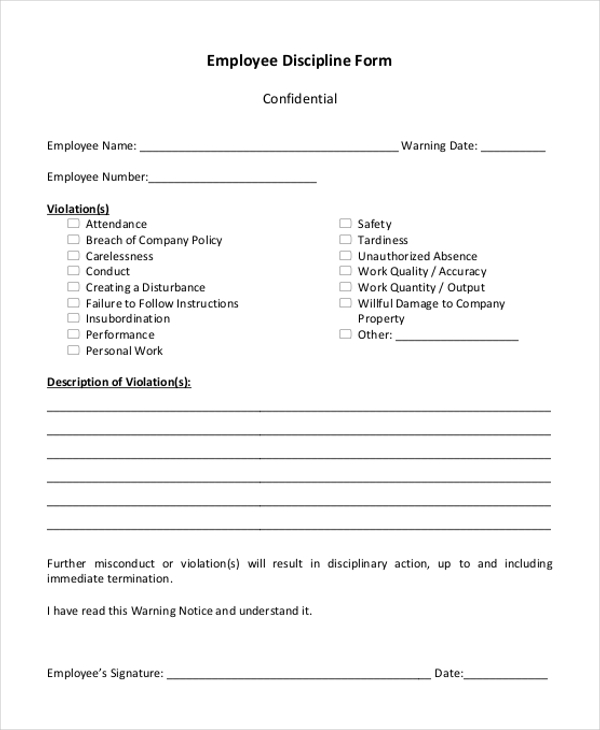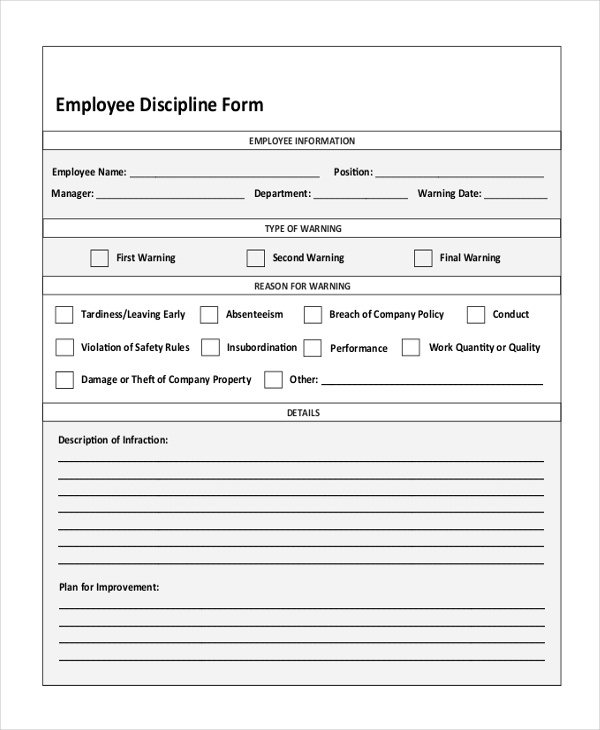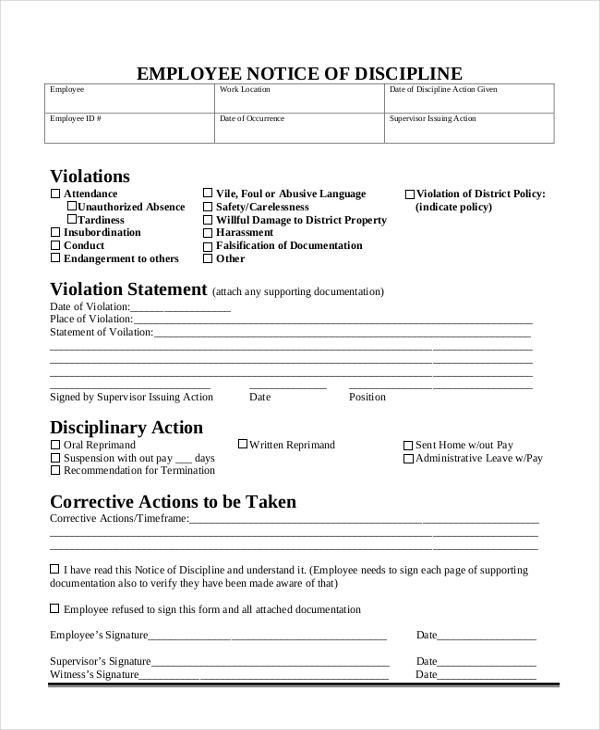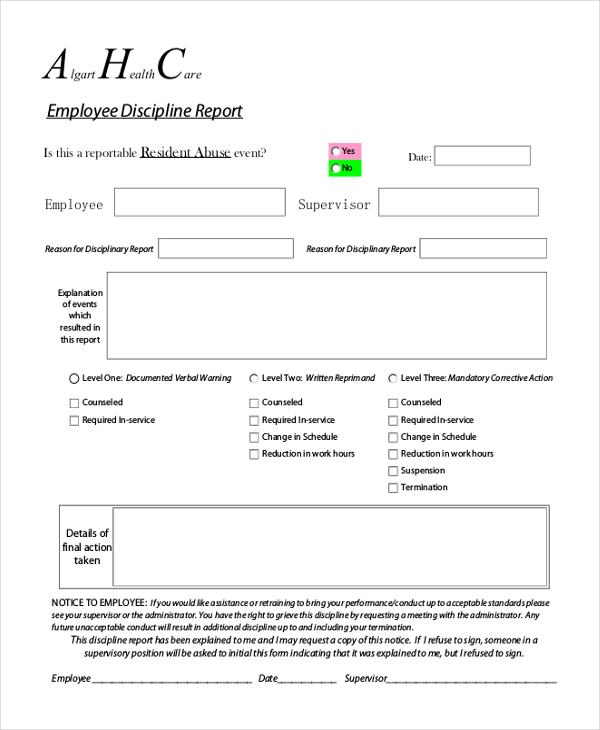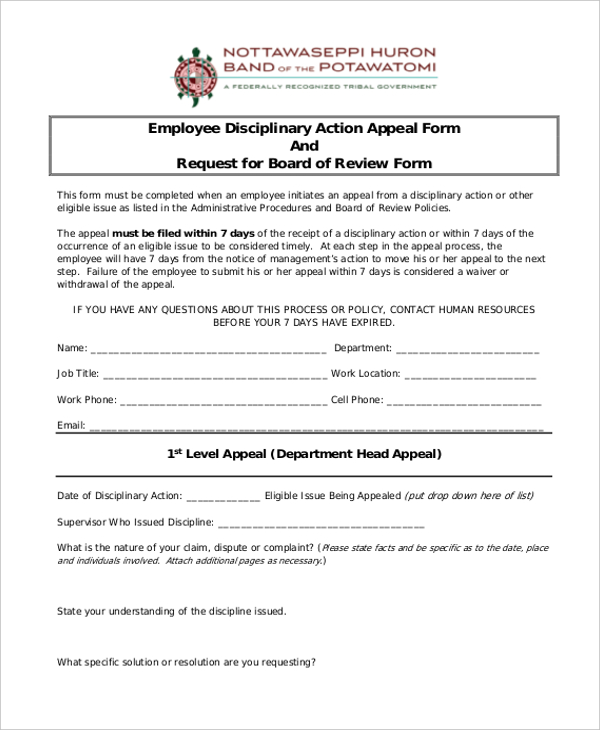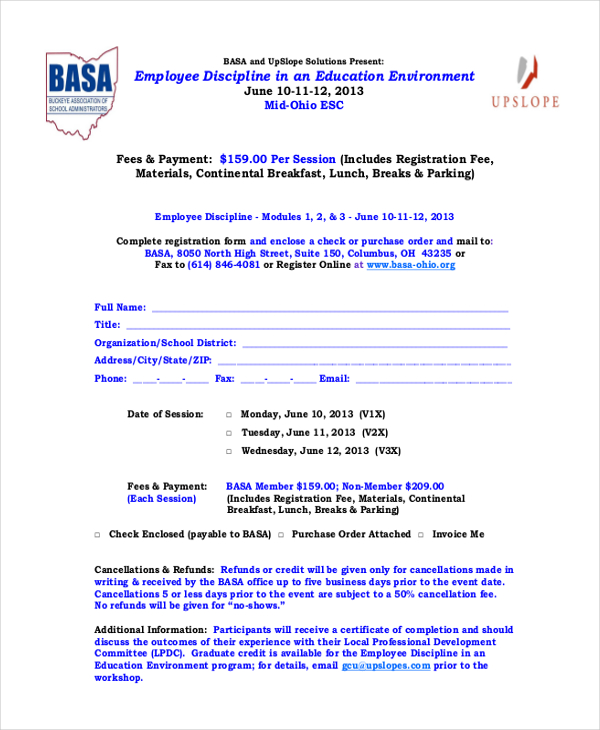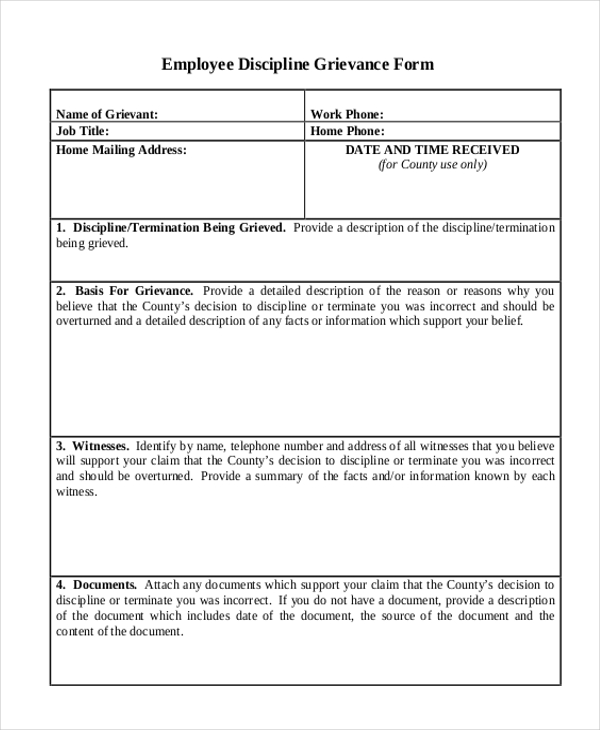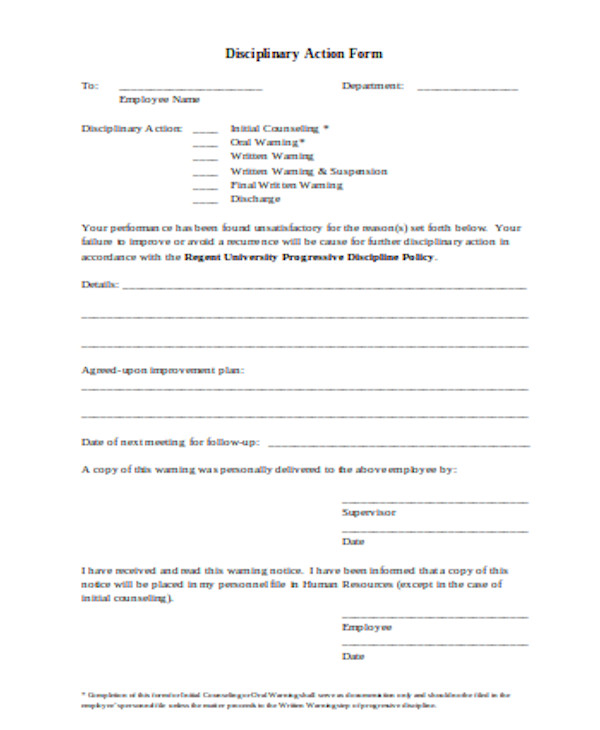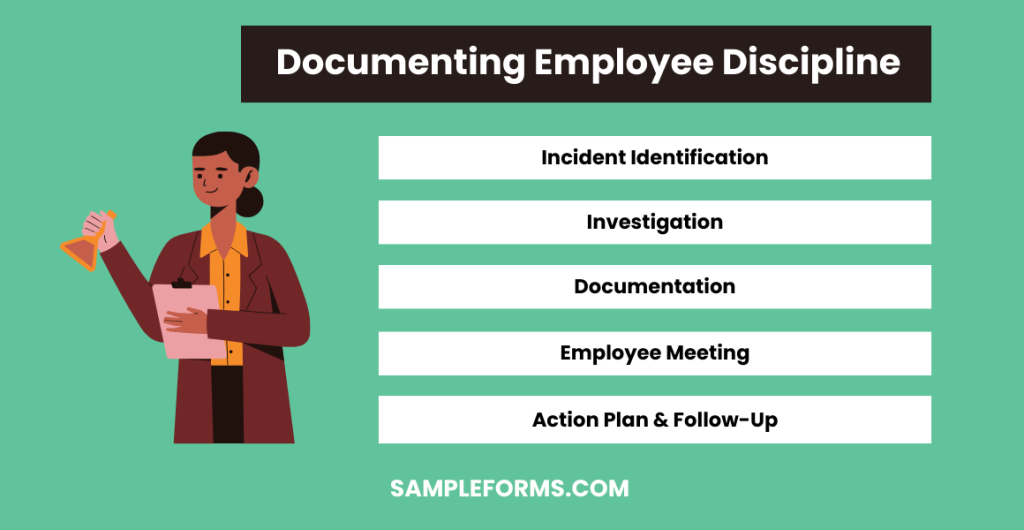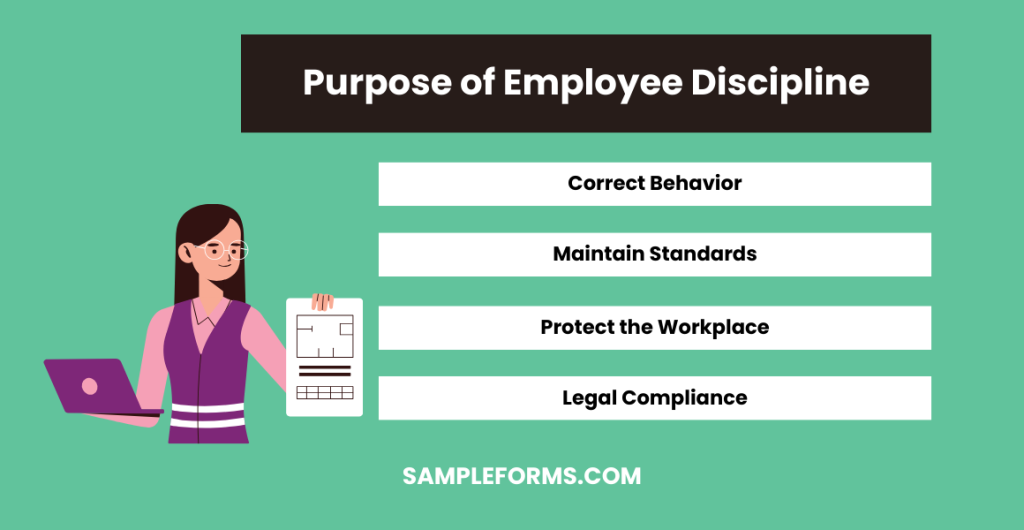Managing workplace conduct effectively is crucial for any organization’s success. Our detailed guide on the Employee Discipline Form offers a deep dive into creating a respectful and productive work environment. With examples and insights, we cover everything from drafting the form to conducting fair disciplinary processes. Whether you’re looking to enhance Employee Form understanding or streamline Employee Disciplinary Action Form procedures, this guide is an invaluable resource for HR professionals and managers alike, ensuring compliance and promoting a positive workplace culture.
Download Employee Discipline Form Bundle
What is an Employee Discipline Form?
An Employee Discipline Form is a critical tool used by HR departments and managers to document and address violations of company policies or performance issues. It serves as a formal record of an employee’s behavior or performance problem, outlining the specific issue, the expected improvement, and the consequences of failing to change. This form is essential for maintaining fairness and clarity in the disciplinary process, ensuring that employees understand the nature of their actions and the steps required for improvement.
Employee Discipline Format
-
Employee and Incident Identification
- Begin with basic information such as employee name, job title, department, and date of the discipline process.
-
Incident Details
- Provide a clear, detailed description of the incident, including the date, location, and any witnesses.
-
Violation Type
- Specify the type of violation (e.g., attendance, performance, conduct) and provide a brief explanation.
-
Previous Warnings
- Document any previous warnings or disciplinary actions related to the current incident.
-
Corrective Action
- Detail the corrective action to be taken, including verbal warnings, written warnings, suspension, or termination.
-
Acknowledgment by Employee
- The employee should acknowledge the disciplinary action, with space for comments and signature.
-
Supervisor Review
- Include a section for the supervisor’s review, comments, and signature to finalize the document.
Employee Discipline Form PDF
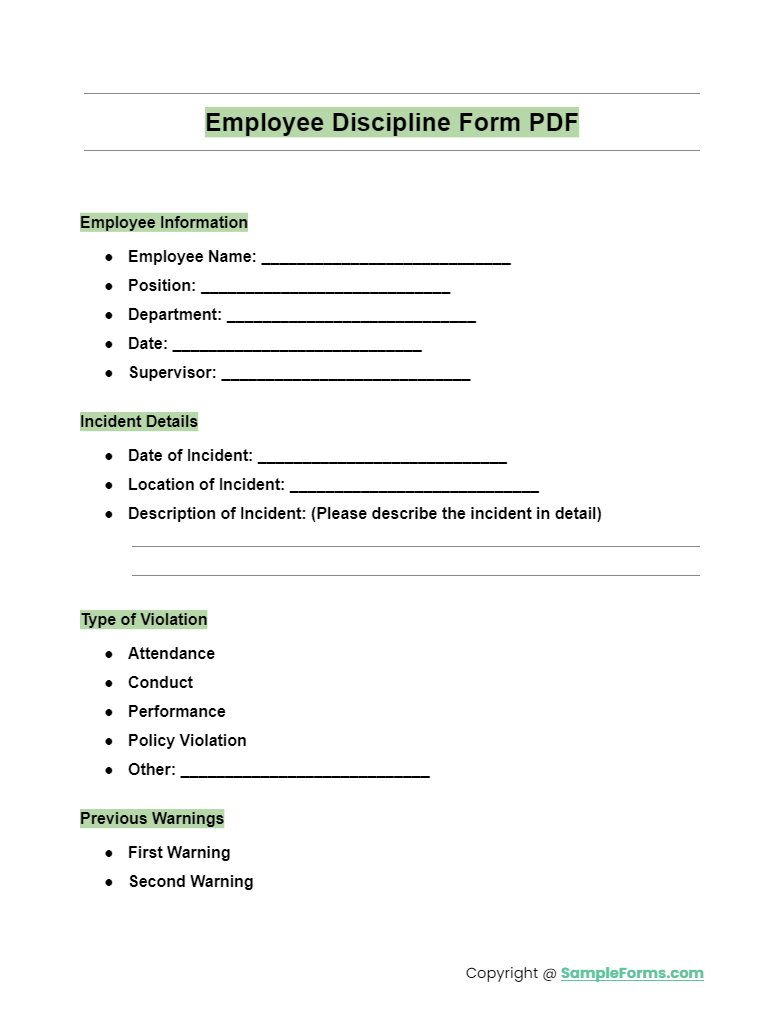
Access a comprehensive Employee Discipline Form PDF to streamline the disciplinary process. It includes sections for Employee Bio Data Form, ensuring detailed documentation and clear communication of disciplinary actions.
Employee Discipline Form Template
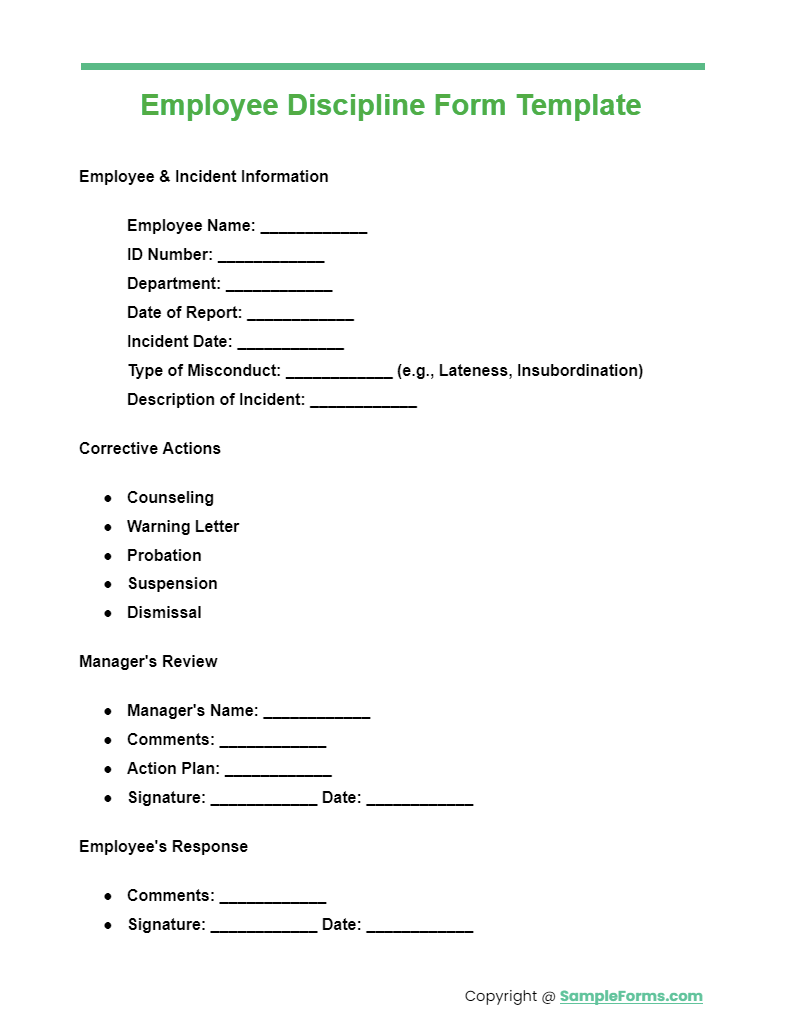
Utilize our customizable Employee Discipline Form Template to address workplace issues effectively. It integrates the Employee Evaluation Form and Employee Write-Up Form, facilitating fair evaluation and actionable feedback for employees.
Free Employee Discipline Form Template Word
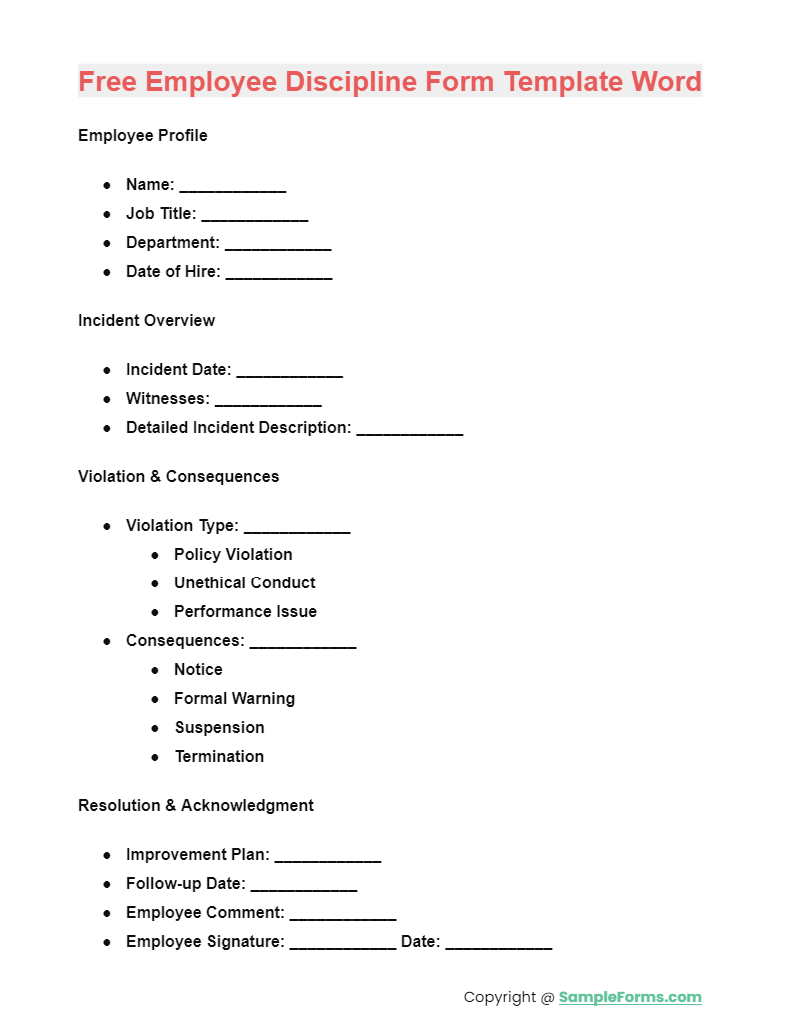
Download our Free Employee Discipline Form Template Word, designed to simplify the discipline process. It incorporates the Employee Clearance Form and Employee Appraisal Form, making it easier to manage employee performance and exit procedures.
Employee Discipline Form California
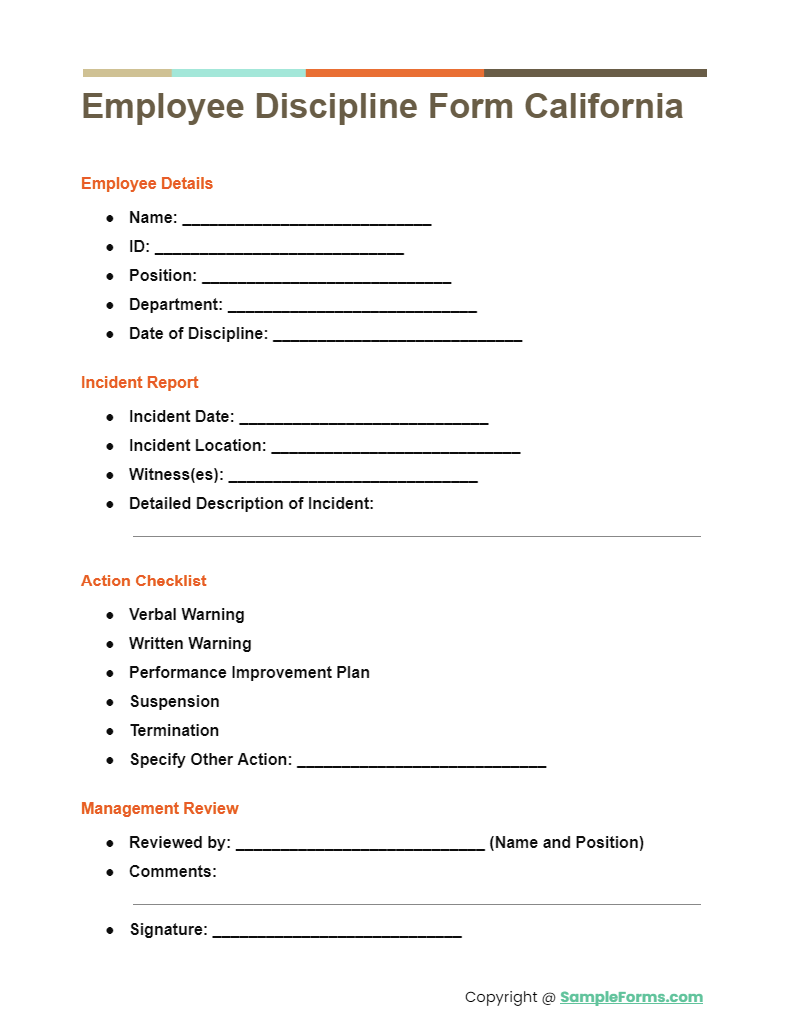
More Employee Discipline Form Samples
Sample Employee Discipline Form
A sample Employee Discipline Form is available one for free to download. You can download it error-free and get it signed by both the ends ensuring a hassle-free association further.
Employee Discipline Form in PDF
This Employee Discipline Form PDF contains data that is mandatory to take a primary disciplinary measure that poses as a warning to the employees involved in the scene that required disciplinary measures.
Employee Notice of Discipline Form Format
Employee notice of discipline is sent to the employees to warn the consequences of their activity. Sending an employee notice of discipline is a positive method of tackling employee issues.
Example of Employee Discipline Report Form
This report is a fine note on how the employee has been involved in the scene that required a disciplinary action and sometimes, which helps the company in taking actions towards the employees.
Free Employee Disciplinary Action Appeal Form
This is the clear description of a disciplinary action and the appeal usually, must be filed within 7 working days of the occurrence of the issue or the receipt of any disciplinary action. At every step of the process, the employee will receive a notice of the management’s action. You may also see Employee Declaration Forms.
Employee Discipline in an Education Environment Form
In an education environment, employee discipline comes of prime importance since education deals with ‘students’, which here is the critical issue that needs to be considered in the first place as lack of employee discipline can reflect on them too.
Downloadable Employee Discipline Grievance Form
This form is noted down the details of the scene happened. The reason and basis for the grievance handled for any disciplinary action or termination can be mentioned along with the requested remedy.
Simple Employee Discipline Form
How do you Document Employee Discipline?
Documenting employee discipline is a crucial aspect of managing workforce conduct and performance. Follow these steps to ensure a thorough and fair process:
- Incident Identification: Clearly describe the behavior or performance issue, referencing the Employee Discipline Form as the official document.
- Investigation: Gather all relevant information, including an Employee Witness Statement Form if applicable, to understand the context and severity of the issue.
- Documentation: Fill out the Employee Discipline Form with detailed information about the incident, the investigation findings, and any previous related issues.
- Employee Meeting: Discuss the issue with the employee, providing them an opportunity to respond. This meeting should be documented in the form.
- Action Plan: Outline the corrective actions required, including any deadlines for improvement and potential consequences if the issue persists.
- Follow-Up: Schedule follow-up meetings to review the employee’s progress and update the form accordingly.
How do you Write an Employee Discipline?
Writing an employee discipline involves a structured approach to ensure clarity and fairness:
- Specify the Issue: Start with a clear statement of the problem using the Employee Performance Evaluation Form as a reference for performance-related issues.
- Detail the Evidence: Include specific examples or evidence of the misconduct or performance shortfall, ensuring the information is objective and verifiable.
- Outline Expectations: Use the Employee Satisfaction Survey Form to highlight areas needing improvement, setting clear, achievable expectations for the employee.
- Consequences: Explain the potential consequences of not meeting these expectations, referencing the Employee Complaint Form.
- Support and Resources: Offer resources or support available to the employee to help them improve, including training or counseling services.
- Confirmation: End with a statement that confirms the employee’s understanding of the discussion and the steps outlined for improvement.
What are the 4 Disciplinary Measures?
The four disciplinary measures typically include:
- Verbal Warning: An informal discussion aimed at correcting behavior before it escalates, often not documented in the Work Order Form.
- Written Warning: A formal warning documented in the Employee Warning Notice, outlining the issue and expectations for improvement.
- Suspension: Temporary removal from the workplace, documented in the Employee Discipline, allowing time for further investigation or as a disciplinary measure.
- Termination: The final step if the issue persists, requiring thorough documentation in the Employee Discipline and adherence to legal and procedural requirements.
What are the 4 Stages of Disciplinary Action?
The four stages of disciplinary action ensure a structured and fair approach:
- Verbal Warning: An initial step to informally address minor issues.
- Written Warning: Formalizes concerns and outlines required improvements, documented in the Employee Warning Notice Form.
- Suspension: A serious measure for significant issues or repeated offenses.
- Termination: The final step, used when other measures have failed to correct the behavior with Employee Resignation Form.
What is the Purpose of Employee Discipline?
The purpose of employee discipline is multi-faceted:
- Correct Behavior: To address and correct unacceptable behavior or performance issues.
- Maintain Standards: Ensures all employees adhere to company policies and performance standards, using tools like the Employee Nomination Form for positive reinforcement.
- Protect the Workplace: Safeguards the work environment and company culture.
- Legal Compliance: Ensures disciplinary actions are taken in compliance with legal requirements.
What are the 2 major concepts of employee discipline?
The two major concepts of employee discipline are:
- Preventive Discipline: Focused on setting clear expectations and guidelines through measures like the Employee Availability Form to prevent issues before they arise.
- Corrective Discipline: Aimed at addressing and correcting issues after they occur, utilizing forms like the Employee Grievance Form and Event Order Form to manage the process effectively.
Who is Responsible for Employee Discipline?
Managers and supervisors are primarily responsible for employee discipline, ensuring adherence to policies with the Employee Shift Change Form. HR supports by providing guidance and ensuring legal compliance.
Should HR be Involved in Disciplinary Action?
Yes, HR should be involved in disciplinary actions to ensure procedures are followed fairly and consistently, leveraging tools like the Employee Declaration Form for documentation and guidance.
Is HR Responsible for Discipline?
HR is responsible for overseeing the disciplinary process, ensuring it aligns with company policy and legal standards, using the Employee Personal Information Form for reference and compliance.
Can Employees Discuss their Discipline?
Employees can discuss their discipline with HR or management, especially when seeking clarification or appealing a decision, utilizing the Employee Suggestion Form for feedback and suggestions.
What Evidence is Needed for a Disciplinary?
Documented evidence, including emails, witness statements, and performance reports, is needed for a disciplinary, supported by the Field Education Form for educational or training-related issues.
What is unfair Disciplinary Action?
Unfair disciplinary action occurs when the process is biased, lacks evidence, or doesn’t follow company policy, potentially leading to the use of the Employee Termination Form under questionable circumstances.
Can I get a Disciplinary Without Warning?
Yes, in cases of serious misconduct or policy violation, disciplinary action, including termination, may occur without a prior warning, documented with the Employee Promotion Form for tracking employee history and actions.
In conclusion, the Employee Discipline Form is a vital component of effective workplace management, offering a structured way to address and rectify employee issues. With our comprehensive guide, including samples, forms, and letters, HR professionals can navigate the disciplinary process with confidence. Utilizing the Employee Feedback Form, organizations can foster a more engaged, disciplined, and productive workforce, ultimately contributing to a healthier, more successful workplace environment.
Related Posts
-
FREE 51+ Termination Forms in PDF | MS Word | XLS
-
FREE 5+ Recruiter Performance Review Forms in PDF | MS Word
-
FREE 4+ Payroll Reallocation Forms in PDF | Excel
-
FREE 4+ Employment Eligibility Verification Forms in PDF
-
FREE 4+ Skills Analysis Forms in PDF | MS Word
-
Employment Reference Form
-
FREE 4+ Incorporation Forms in PDF | MS Word
-
New Hire Form
-
FREE 6+ Employee Manual Acknowledgment Forms in MS Word | Pages | PDF
-
Employee Nomination Form
-
FREE 4+ Employee Time Sheet Forms in MS Word | Excel | PDF
-
Employee End of Day Report Form
-
Employment Rejection Letter
-
FREE 4+ Employee Termination Checklist Forms in MS Word | Excel | PDF
-
FREE 9+ Employment Eligibility Forms in PDF | MS Word
